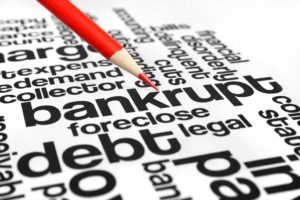
If an individual’s only income is from social security, creditors can sue and be granted a judgment, but cannot garnish social security income or levy a bank account when the balance consists solely of social security income. In this instance, it becomes questionable whether or not bankruptcy is even advisable. As long as social security is the only income, this individual simply does not have to pay off their creditors. They are what you might call “judgment proof.” Creditors will likely sue, but they simply can’t do much to enforce any judgment received as a result of the suit.
The only reason to file bankruptcy in this situation would be to avoid harassment. While social security as the sole income might leave an individual “judgment proof” it does not make them harassment proof. Creditors and collectors can and will still dedicate their time calling. Some will call incessantly. Some will even go beyond the lines of professionalism and voice inappropriate or even illegal comments and/or threats.
If you find yourself the victim of extreme harassment by a collector, collection agency or creditor you may benefit from contacting a law firm that specializes in illegal harassment. Many will take cases for free and go after the collector or agency for illegal conduct. Sadly, these firms typically only take on the most extreme cases. If you are going to go this route, make sure to keep detailed records of the harassment as it is occurring and don’t be surprised if the harassment you are experiencing isn’t deemed as an “extreme” case.
Having said that, it is important to note that purposefully using a credit card to make purchases or to pay off personal loans to family/friends, etc. with no intention of paying the debt back is fraud. Doing so with every intention of filing bankruptcy on the debt is bankruptcy fraud. The protections afforded through bankruptcy are for people who intend to pay their bills, but cannot. Many bankruptcy petitioners have experienced major life changes that drastically affected their income or expenses: loss of job, chronic sickness, major health catastrophe, death in the family, divorce, etc.
If you have questions regarding the benefits of filing for bankruptcy or what constitutes bankruptcy fraud, please get in touch with one of the experienced southern California bankruptcy attorneys at Westgate Law.
